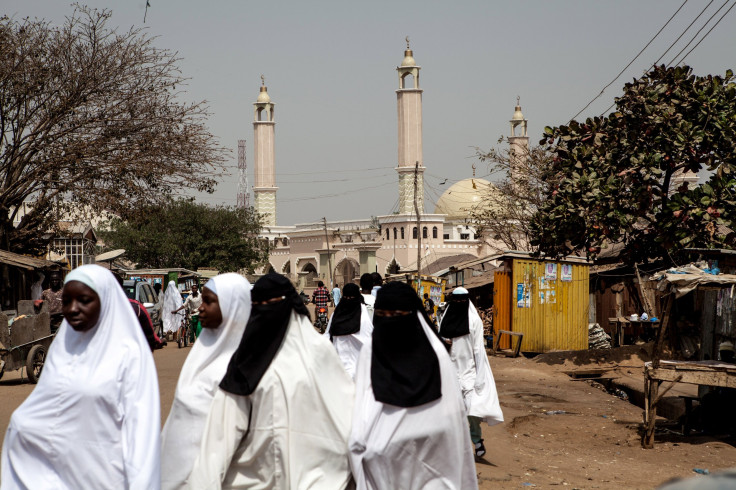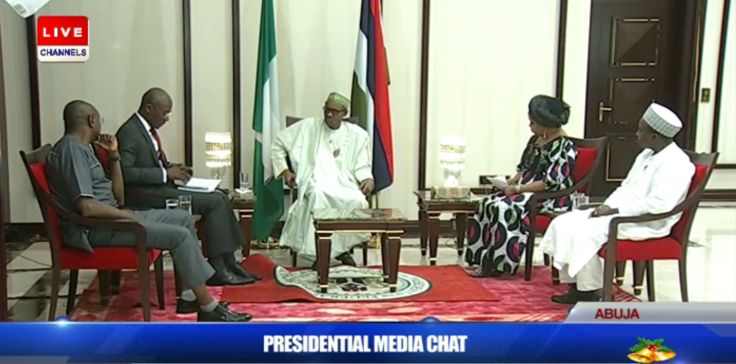Will Nigeria Ban Hijab, Islamic Veils? Buhari's Spokesman Clarifies

Nigeria has not barred women from wearing Islamic veils, a presidential spokesman clarified over the weekend, days after President Muhammadu Buhari held his first media chat. The president’s special adviser, Garba Shehu, said Saturday that Buhari’s administration would always respect the rights of Muslims and religious freedom, although militant group Boko Haram was abusing the use of hijab to carry out deadly suicide bombings, according to Nigeria’s Daily Trust newspaper.
During his presidential media chat Wednesday, Buhari said "hijab," a word that describes the act of covering up generally but is also used to describe head scarves worn by Muslim women, might be banned if suicide bombings continue. “Banning hijab is not enough. But it will have to be banned if this continues,” the Nigerian leader said. The statement provoked outrage and speculation that Buhari’s administration would move to bar Islamic veils. Shehu insisted Saturday the president would not make any decision on the issue without consulting all concerned stakeholders.
Boko Haram, a Nigeria-based militant group, often uses young women and girls wearing Islamic veils as suicide bombers, forcing them to conceal explosives under their loose-fitting clothing. Buhari said Wednesday Boko Haram had been “technically” defeated, with the Islamic extremist group capable of no more than suicide bombings on soft targets such as quiet villages and crowded markets. But these attacks have proved to be extremely deadly, he warned. At least 50 people were killed Dec. 28 when Boko Haram militants struck the northeast city of Maiduguri with rocket-propelled grenades and multiple suicide bombers.

Boko Haram was reportedly responsible for 6,073 deaths in 2014, making it the world's deadliest terrorist organization. Northeast Nigeria, the birthplace of Boko Haram, was the deadliest place to live in terms of terrorism, according to the Global Terrorism Index, published by the Institute for Economics and Peace, a global think tank headquartered in Sydney.
Since launching its Islamic insurgency six years ago, Boko Haram has expanded its rampages into neighboring Cameroon, Chad and Niger and has overwhelmingly targeted civilians. The Sunni militant group has killed about 20,000 people and displaced more than 2 million. Boko Haram, which pledged allegiance to the Islamic State group in March, seeks to establish a caliphate governed by Islamic law, or Shariah.
Buhari has vowed to crush Boko Haram since taking office in late May. The Nigerian military retook much of the extremist group’s northern territory last year, and Buhari insisted Wednesday that progress has been made. Still, Boko Haram is fighting back and has scaled up its attacks. The Islamic State group, also known as ISIS, published in mid-December an infographic indicating Boko Haram had launched more than 100 attacks and had killed more than 1,000 people in the previous two months.
© Copyright IBTimes 2024. All rights reserved.




















